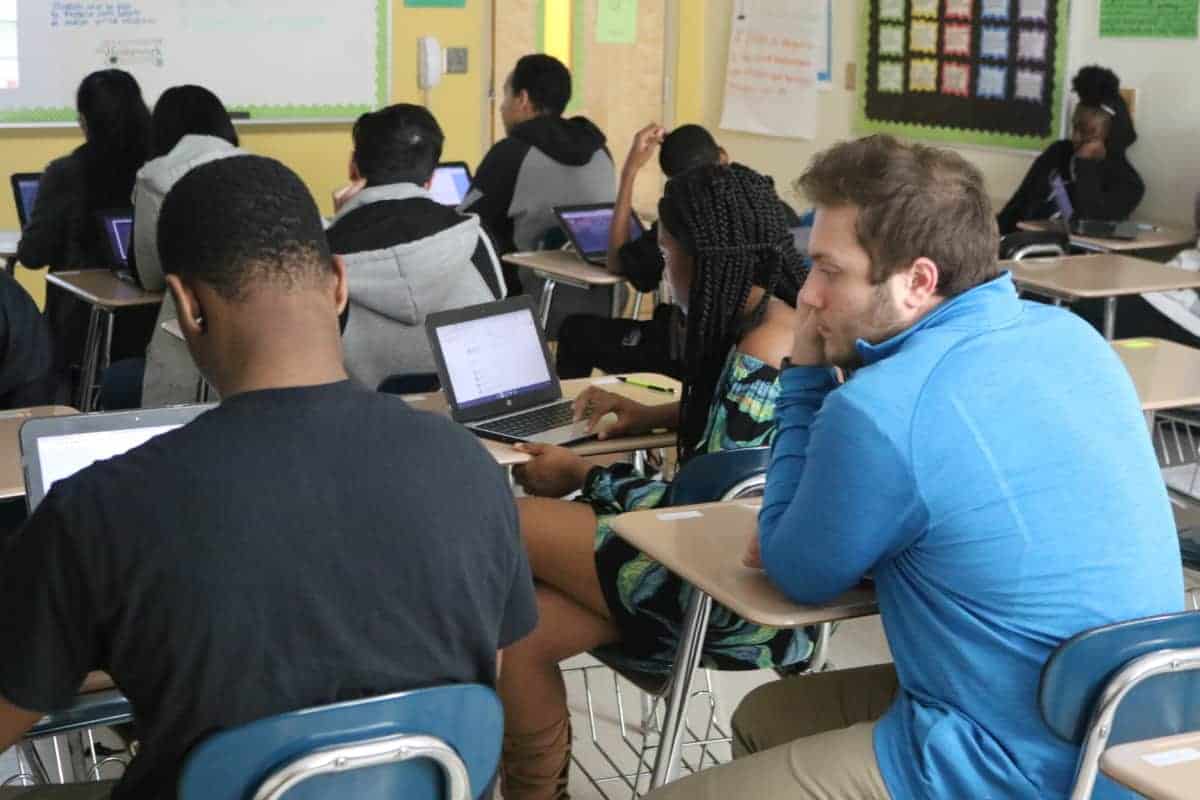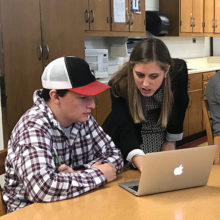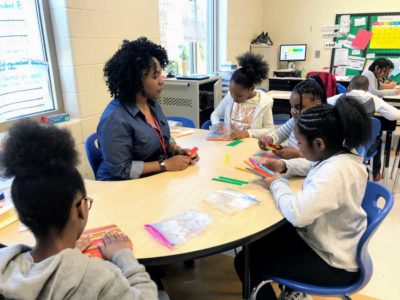Haley Gibbs knew she found what she wanted to do in her life after spending a day at a middle school in Charlotte.
“I don’t know what happened that day, but I walked in and said this is it. I love this environment. I love the age group. … I left that day feeling really fulfilled, so I said yes, I’m going to do this,” Gibbs said.
She found herself at that school thanks to an education class at UNC Charlotte. Although it was just an introductory class, it required 10 clinical hours — time spent in real schools practicing teaching. After that class, Gibbs enrolled in UNC Charlotte’s Cato College of Education, where she is currently in her last semester and expects to graduate in May.
Gibbs’ story illustrates just one of the reasons clinical practice — the hands-on, real-life experience in a classroom during an educator preparation program — is so important. Over the last few years, UNC Charlotte’s Cato College of Education, led by Dean Ellen McIntyre, has significantly revised the way they are preparing teachers with a deep focus on clinical practice tied to district partnerships. The result of all this work, McIntyre hopes, is better teachers leading to better student outcomes.
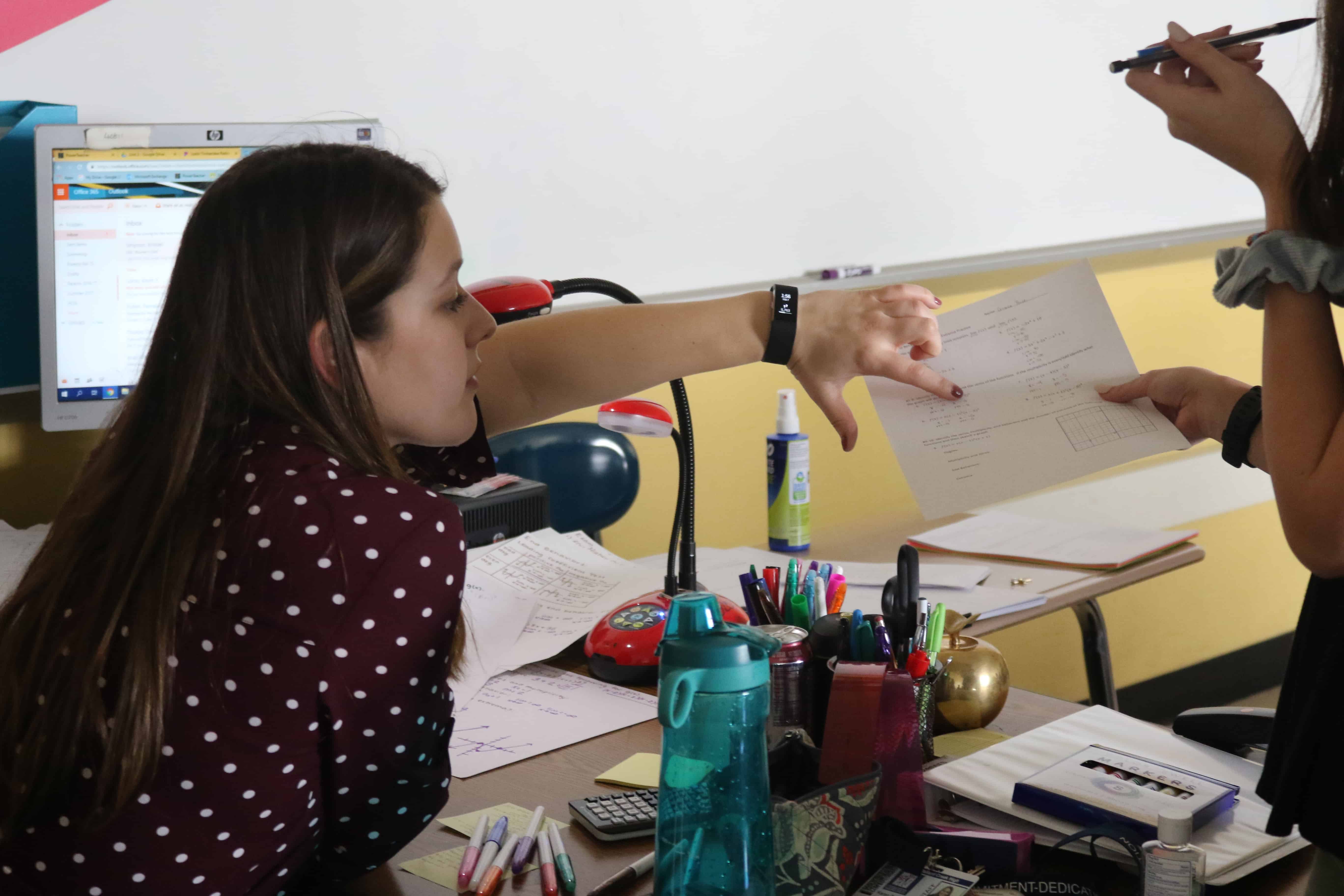

Over the last decade, states across the country have taken a closer look at how their teachers are trained, driven largely by poor student outcomes and research showing how important teachers are to those student outcomes. Kate Walsh describes the intense criticism schools of education have received, including from then-Secretary of Education Arne Duncan when he said, “By almost any standard, many if not most of the nation’s 1,450 schools, colleges, and departments of education are doing a mediocre job of preparing teachers for the realities of the 21st-century classroom.”
In North Carolina, the General Assembly passed legislation in 2017 that changed how the state governs educator preparation programs (EPPs) and created the Professional Educator Preparation & Standards Commission to make recommendations to the State Board of Education on educator preparation, licensure, and professional development. SB599 emphasizes the importance of clinical practice and states that all EPPs shall require either a clinical practice internship of at least 16 weeks or a residency of at least a year. For more on the residency model, read this article.
For the Cato College of Education, the legislation was just one of many forces pushing them to change the way they prepare teachers. First and foremost, Dean McIntyre said, was the recognition that they were not producing high quality teachers.
“We can look around and see that the quality of the teachers we are producing just [isn’t] good enough, even though we know we have a ‘strong’ teacher prep program comparatively,” McIntyre said. “We also know that kids are not achieving in the way they should and could be, and we know a good part of that is about their teachers, and so we’re just not satisfied.”
In response, UNCC embarked on an ambitious restructuring of their undergraduate, graduate, and now residency teacher preparation programs. They looked around at what was working and visited the best teacher preparation programs in the country. Their new approach is a mix of proven strategies borrowed from these programs and their own creative innovations. Undergirding the transformation is a focus on strong clinical practice experiences.
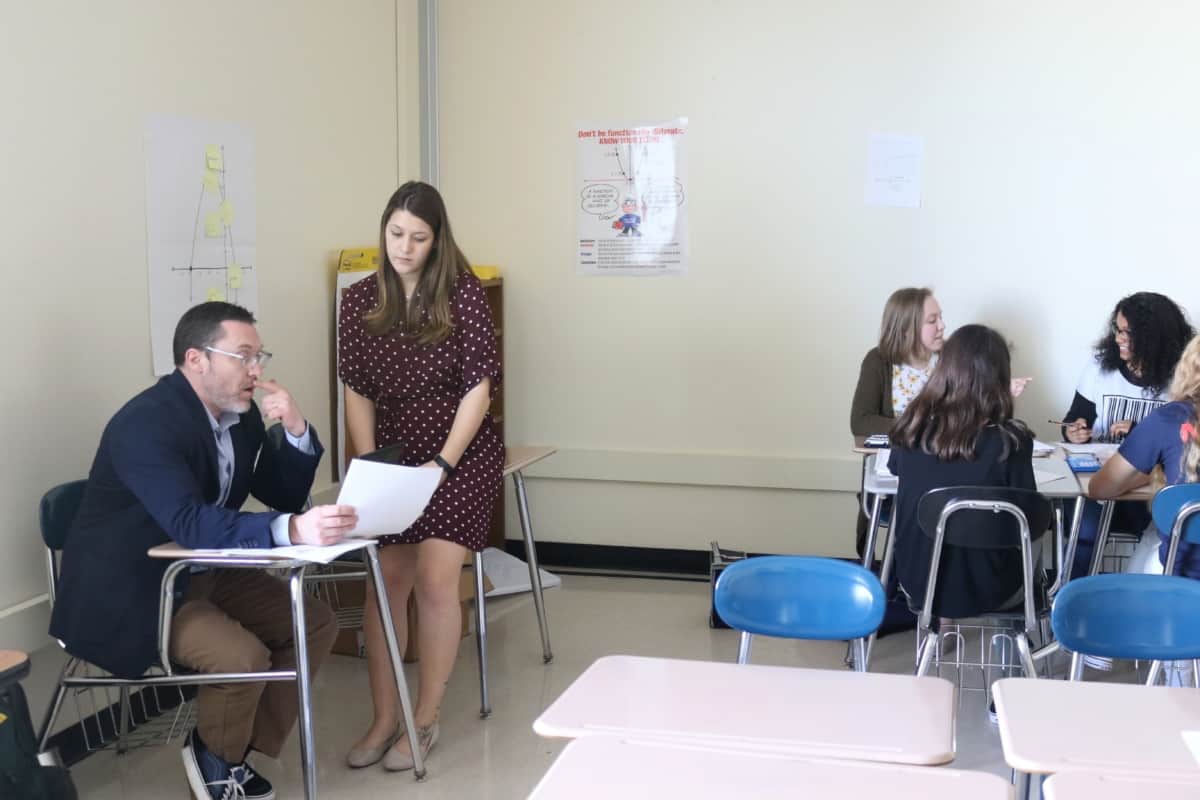

Paul Fitchett, assistant dean of teaching and innovation at UNCC, used the following analogy to explain the importance of clinical practice:
“When we teach people how to fly airplanes, they put hours and hours in front of simulators. But then they have hours and hours of flight time as a copilot with no people in the plane — hours and hours of airtime before they are actually doing it. You would never just go straight from a Microsoft flight simulator to flying an American Airlines plane.”
Teresa Petty, associate dean for undergraduate programs and teacher preparation at UNCC, explained it this way:
“Many professions have clinical practice. For teachers, the clinical practice really is rehearsing and practicing what you learn in coursework in a school setting with small groups of children, with individual students, or with whole classrooms.”
Research supports UNCC’s increased emphasis on clinical practice. Just as those in medicine learn the knowledge and the skills necessary to be a good doctor, teachers must also have content knowledge as well as the skills to manage a classroom, conduct small groups, and lesson plan, among other things. The best way to hone their skills is to give teachers ample time to practice, both in front of their peers as well as with students and in situations that mirror their later experiences in the classroom.
“The more time our students have in schools, the more efficacious they’ll be, and ultimately they’ll be more successful,” Fitchett explained.
UNCC implemented a learning cycle model to increase the amount of clinical practice and feedback their students were getting. Instructors first explain and model a practice. Students then develop their own task or lesson using that practice and rehearse it in front of their peers, giving each other feedback. They then practice in schools and get feedback from the clinical educators as well as their instructors. “The idea is consistent feedback,” Fitchett said.
In the undergraduate program, clinical practice is built in every year in increasing amounts, culminating in a yearlong internship during their senior year. For the first semester of the internship, the students spend one full day every week in their placement school with their clinical educator. Erica Moody, lecturer and university supervisor, said the students often spend more than one day in the classroom during their first semester because “they really feel like a valued part of that classroom.”
Starting in the second semester, students are in the classroom teaching full-time. According to Moody, the student teachers gradually assume more responsibility during the first month until they are fully in charge and have taken on all the responsibilities of teaching the class.
During their internship, the student teachers receive feedback, coaching, and support from the clinical educator as well as coaching and support from a university supervisor. “I make at least five visits for my student teaching interns throughout the semester,” Moody said. “I spend several hours with each student teacher, getting there early to review their lesson plans and complete an observation, which ranges from 45 minutes up to an hour.”
The yearlong internship is designed to gradually give student teachers more responsibility in the classroom instead of just throwing them in full-time on day one. For Gibbs, this process helped her tremendously.
“I feel like the idea of taking over a classroom for the first time is very scary,” she said. “There’s a certain level of anxiety that comes with that. The way they have it set up is by the time you reach that point, you are already familiar with the school, you know the bell schedule, you know teachers, [and] you have resources there. Not only that, but you have time with the students and you actually get to build those relationships gradually, so when you do take over the classroom, it’s not shocking for you or the students because they already know who you are.”
Courtney Jones is also a senior at UNC Charlotte and is in the second semester of her internship. She said her student teaching experience helped her learn skills and strategies that she can’t learn in a textbook, like the importance of giving wait time, or taking a pause after asking a question, so students have time to think and respond.
For senior Matt Feuer, the student teaching experience has solidified his desire to be a teacher. “It feels right,” he explained. “It feels very natural … in the sense that I know that this is what I was meant to be doing.”
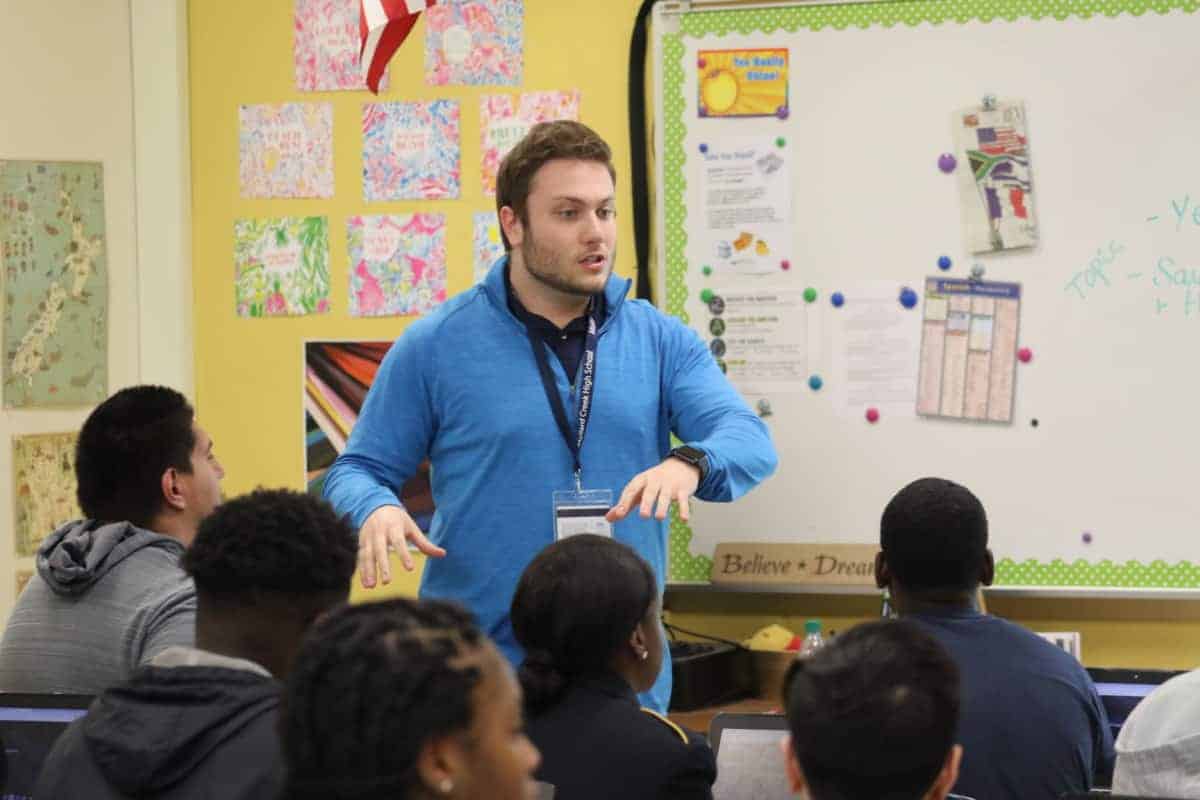

A critical part of UNCC’s approach to build a better clinical practice experience is building strong partnerships with the local districts where their students are teaching. When McIntyre and her team started looking at how to strengthen clinical practice, they realized they needed to have better communication and alignment between the university instructors, supervisors, and clinical educators.
“The number one thing we knew we wanted to do was to break down the silos between the professionals who are preparing teachers,” McIntyre said. “We’ve got faculty who teach courses on how to teach, then we’ve got the cooperative teachers in the schools … then we’ve got the supervisors who ‘supervise’ them and are supposed to act as a liaison … none of those groups were talking.”
To do this, the college is fundamentally restructuring the way it works with district schools. Starting next year, the college will have a network of partner schools, and each school will have a school site coordinator. The coordinator will be in charge of a few schools for the whole year and work with multiple student teachers at those school instead of working with student teachers all over the region.
“There was a whole lot of wasted money and a lot of wasted time,” McIntyre said. “We had supervisors spending more time in their car driving school to school to see our teacher candidates … a lot of waste.”
To choose the schools, McIntyre said they went first to their faculty who spend a lot of time in the schools and asked where they see a number of high-quality teachers and strong leadership. They then looked at schools meeting growth for the past few years as well as Title I schools serving more students in poverty.
“We have a mission to create teachers who are really prepared to teach in some of the most challenging environments,” McIntyre explained.
Finally, they tried to select schools that reflect the different districts in which their teachers typically serve, including Union, Gaston, and Cabarrus.
While this network requires a higher investment from the schools, McIntyre sees it as beneficial to both parties.
“We know this is a win-win because these schools are creating new teachers for themselves,” she said.
In addition, McIntyre restructured the college’s budget to pay clinical educators a higher stipend to work with the college’s student teachers and participate in training developed by UNCC. Clinical educators can now earn a stipend anywhere from $400 to $1,600 depending on the amount of training in which they participate.
“We will invest in the schools, so that they will invest back in us,” McIntyre said.
Offering the training for clinical educators is a crucial part of breaking through the silos and aligning UNCC faculty, supervisors, and the district schools. Three years ago, UNCC started a Teacher Education Institute (TEI) to help facilitate this communication.
“Each summer we have an institute,” Petty explained. “We bring in our clinical educators onsite and our university supervisors and faculty. And the idea is they [are] speaking the same language to teacher candidates and offering the same types of support … It can be really confusing if they hear one thing in coursework, one thing in school, and their supervisor tells them something else entirely.”
For the past two years, about 40 to 50 educators, supervisors, and faculty have attended the TEI. This summer, McIntyre said they are expanding to 120 participants.
Another change they are making is placing student teachers in pairs rather than one per classroom. McIntyre said they want to make sure all student teachers have high quality mentors but also that the two student teachers can help each other plan, give feedback, and generally support each other. This is a move other educator preparation programs are making as well, McIntyre said, including East Carolina University.
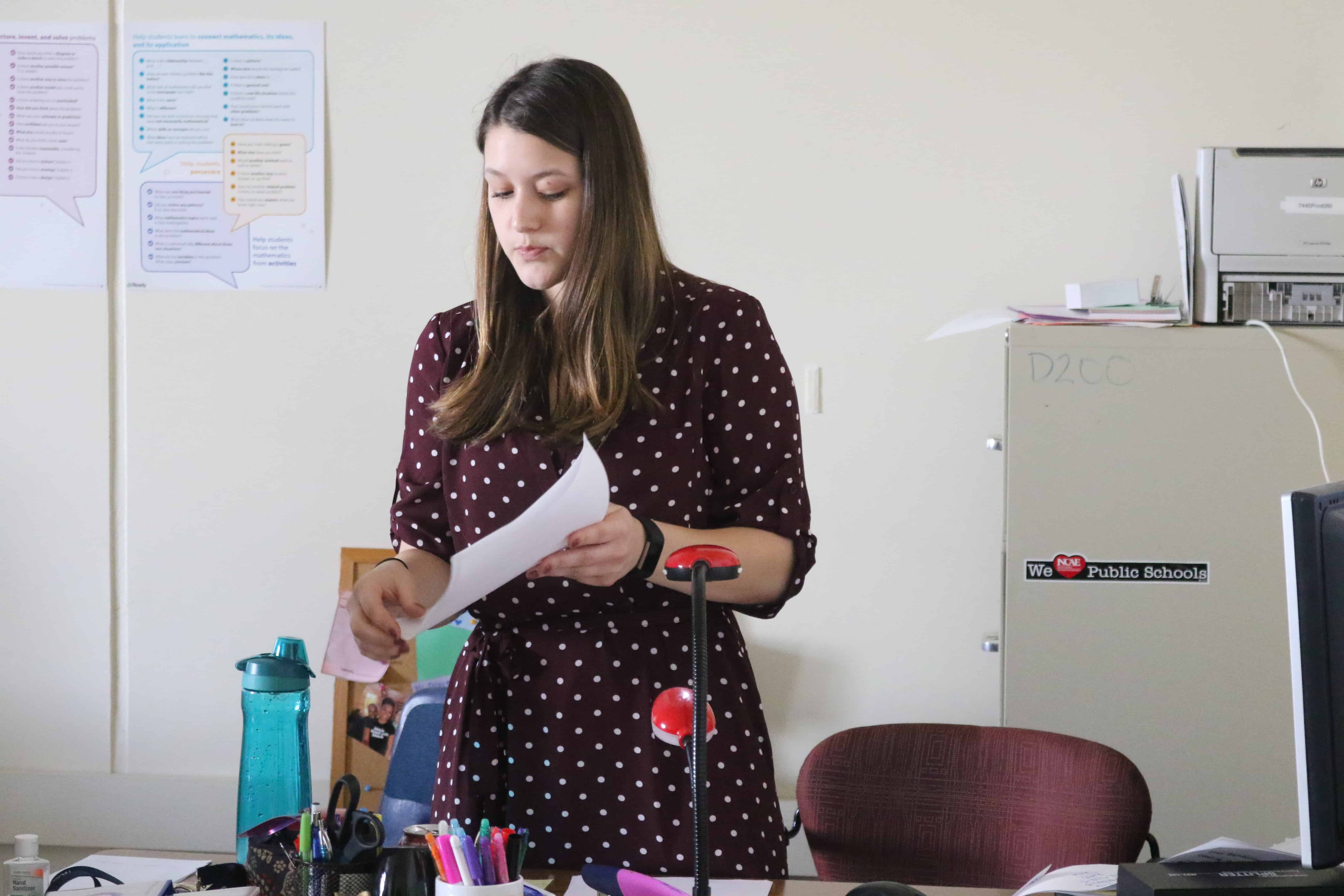

How will they know this new approach is successful? McIntyre said they are developing studies to look at their practices and also have an external evaluator, Horizon Research Inc. out of Chapel Hill. They will be tracking their graduates’ data, including student outcomes, over the next five to 10 years. Additionally, they are conducting student surveys and focus groups and incorporating the feedback they receive.
One of the motivations to start the Teacher Education Institute came from focus groups the dean and her team conducted with their students.
“What we learned from the teachers was they would say things like ‘I love my professors,’ and they do they love them [and] they love their supervisors,” McIntyre said. “Then I’d say what did you learn about how to teach, and it was crickets.”
The college realized instructors were not connecting theory to practice as much as they wanted, or that it was happening in some classes but not others.
As they move forward, they will continue to solicit feedback and iterate their model based on that feedback.
“I know for us, we just want to keep improving on practice-based education, and we want to continue to strengthen relationships with school partners,” Petty said.
Fitchett echoed Petty, saying that the most important factor in their success is “that the clinical piece is in many ways an equal partner to the curriculum that is developed.” He added, “Having clinical partners who are willing and enthused and have the capacity to support us as we them, that synergistic relationship is essential.”
This is the fourth article in a series on clinical practice. To see the rest of the series, visit this page.
